partnership with CFS
CFS Partnership Statement
CFS is selective with the projects and PI’s we work with. We expand our program offerings in two ways: Recommendations from an existing CFS field school director/CFS board member. Or CFS staff identification of a need (geographic, theoretical, sub discipline, etc.) and then search for scholars and projects that address such need.
By and large, CFS expands by invitation. But we do make exceptions to interesting projects that we feel may address student needs. If you are interested in working with CFS, please write to info@fieldsciences.org and a staff member will contact you for an intake interview.
Our review process is vigorous. It typically takes 14-16 months to approve a program and the process includes the following five steps:
- Initial intake interview (done via Zoom).
- Site visit with project director.
- If cleared to apply after the site visit, you will need to submit several documents (application, syllabus, budget, list of publications, etc.). These, together with the site visit report made by CFS staff member, goes to our Board of Directors for peer-review.
- CFS Board review the entire application packet and decide. The Board can decide to accept, accept with request for modification, or reject a project.
- If approved, additional documentation is requested – images, meeting location, application parameters, etc. – and a webpage for the project is built on the CFS site.
To ensure quality of all our field schools, we engage in ongoing oversight. Project directors submit an annual report and are visited during the field school at least once every four years. Student evaluations are an important part of each program evaluation, as is student safety, publication record and public engagement.
why work with CFS?
There are many ways to run a field school. PI’s may run a field school through a university – usually through their Study Abroad/Study Away offices. This partnership usually comes with significant bureaucracy and hefty fees that the university charges. PI’s may run an independent field school but will have to do all the marketing and risk management alone, and insurance premiums for a single program will be high. Or, a PI’s may wish to have their field school become part of an umbrella organization (there are options out there). Such an arrangement requires the PI to subject herself to a review process and adhere to organization-wide standards and regulations. The benefits are usually economies of scale, aggregated publication & advertisement of all programs by the organization staff, and liability and other insurance costs shared by all programs. CFS is one such organization, so why should you choose us over others?
- Our peer review process is shared by other organizations, and it is vigorous, effective and provides PI’s with detailed feedback. What makes our process unique is its transparency and structure. The CFS peer-review process provides PI’s with organized, detailed and specific recommendations for improvement. Our peer-review process is designed to be a positive experience, to set our partners and our students for success.
- CFS is growing, but in a strictly controlled way (Fig 1). We make sure we have the staff, resources and support needed to ensure quality of service to both PI’s and students. Attention to details and excellence in all that we do is our hallmark of operations.
- CFS provide scholarships and other financial support. We offer interest free loans, so more students can afford field training.
- We partner with the Register of Professional Archaeologists (RPA) and offer all graduates of our field school a free, one year RPA membership.
- CFS cost structure makes our field schools some of the most affordable. When looking at average cost of field schools (Fig 2), CFS field schools seem expensive. But not all field schools are created equal. Some are only two weeks long; others are only one week (Fig 3). Some awards academic credit units, most do not (Fig 4). All CFS archaeology field schools are four weeks long* and award students 8 semester credit units. To compare apples to apples, it is best to measure cost per week or credit units (return of investment to students). CFS cost per week is just slightly over average (Fig 5), and significantly below average per credit unit (fig 6). Given that students can transfer CFS credit units to their home institutions, tuition – around $500 per unit – is actually quite effective and attractive.
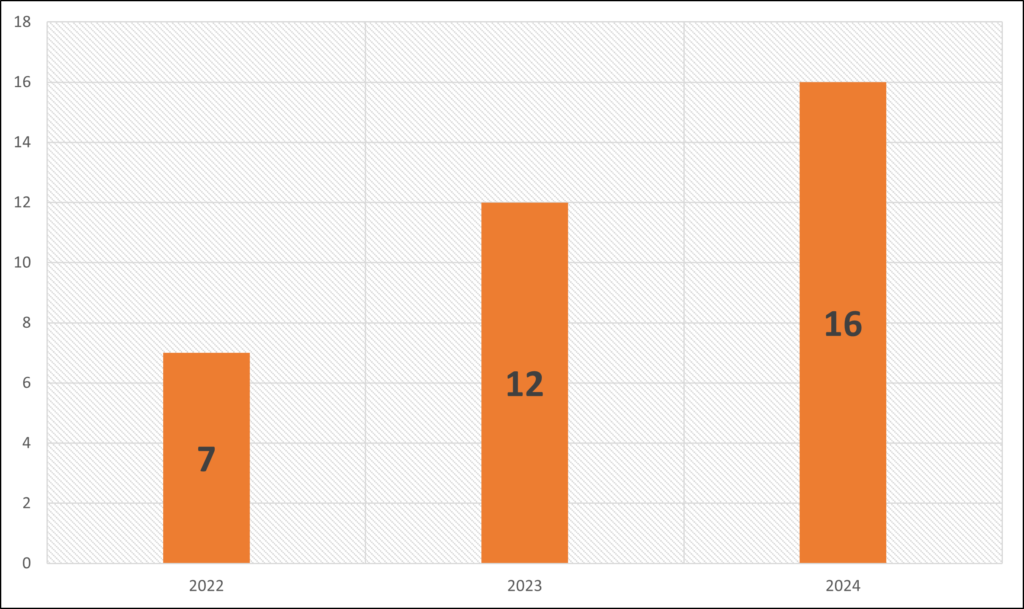
Figure 1: Number of CFS field schools since inception
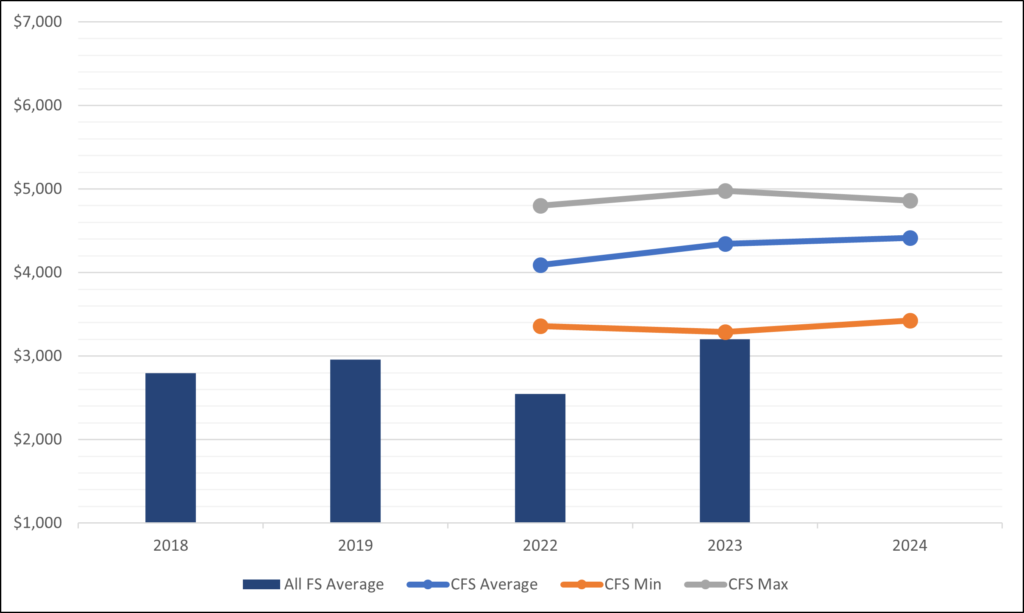
Figure 2: Average cost of all field schools, and CFS Average, Min & Max cost in years of operation (note that there were no field schools in 2020-21 due to the Covid pandemic)
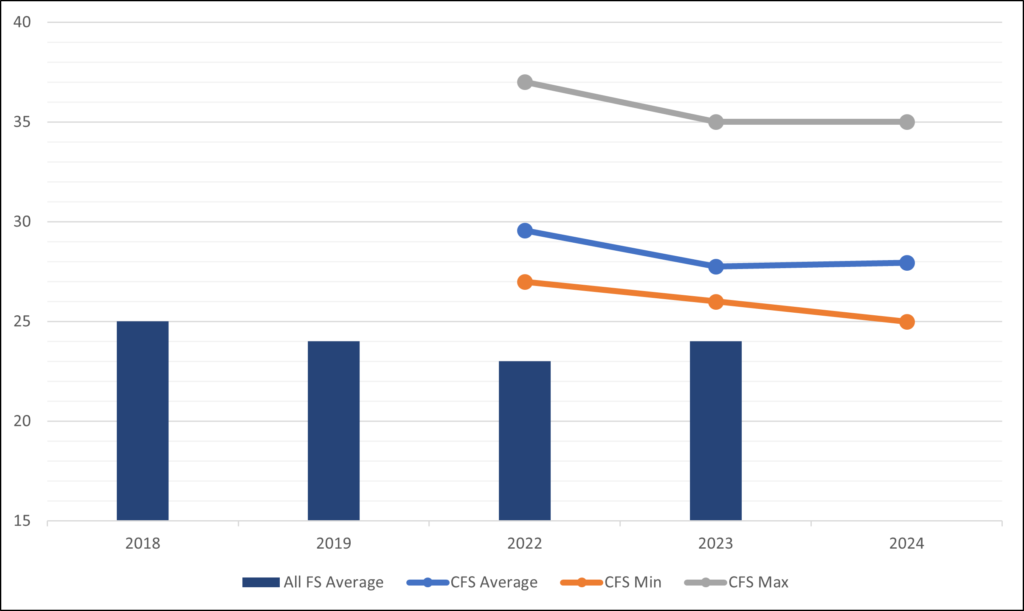
Figure 3: Average field school duration (days), and CFS Average, Min & Max duration in years of operation (note that there were no field schools in 2020-21 due to the Covid pandemic)
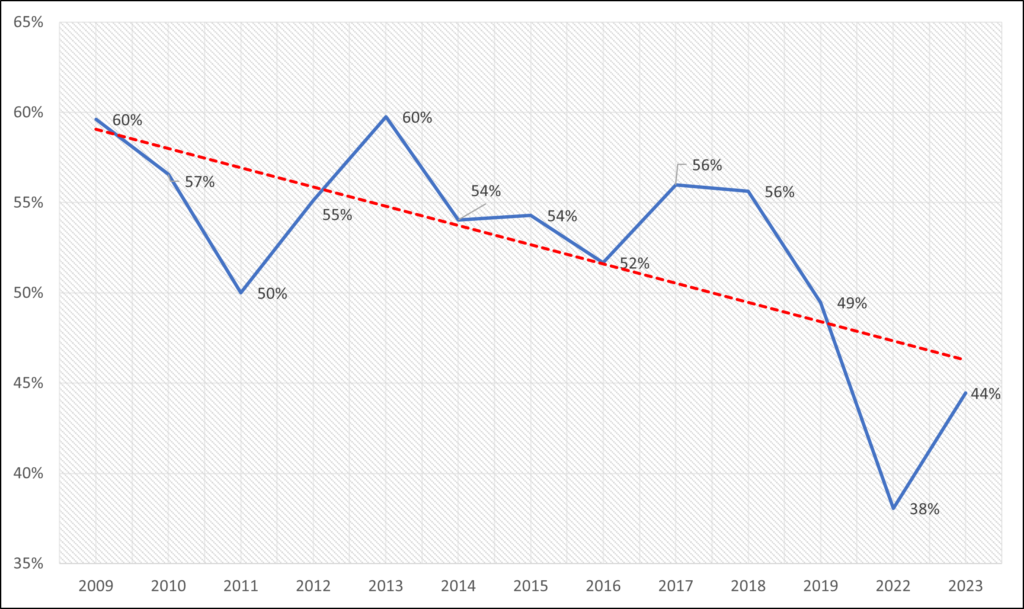
Figure 4: Percentage of field schools awarding academic credit units (note that there were no field schools in 2020-21 due to the Covid pandemic)
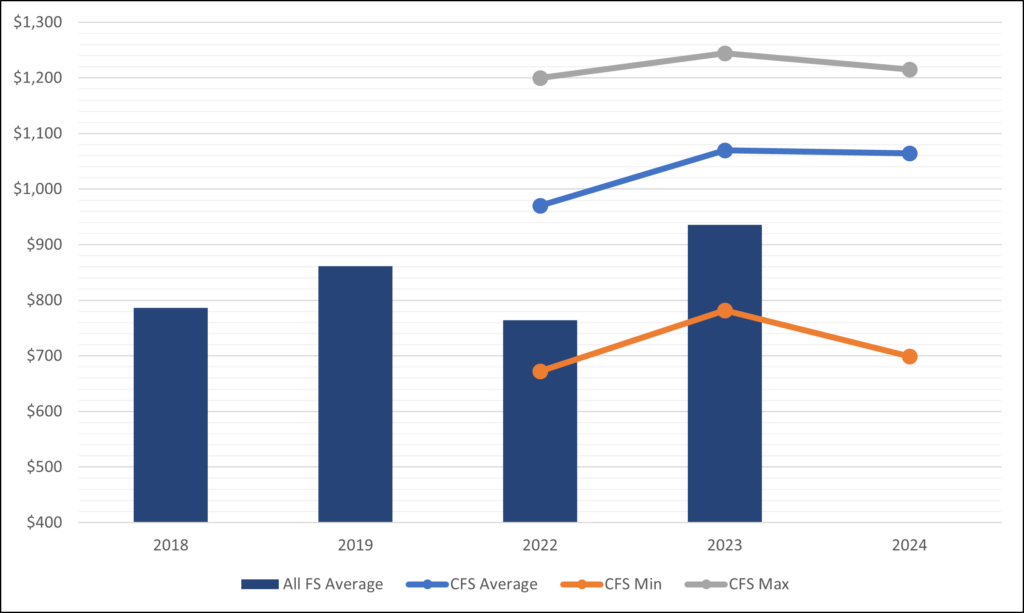
Figure 5: Average cost per week of all field schools, and CFS weekly Average, Min & Max cost in years of operation (note that there were no field schools in 2020-21 due to the Covid pandemic)
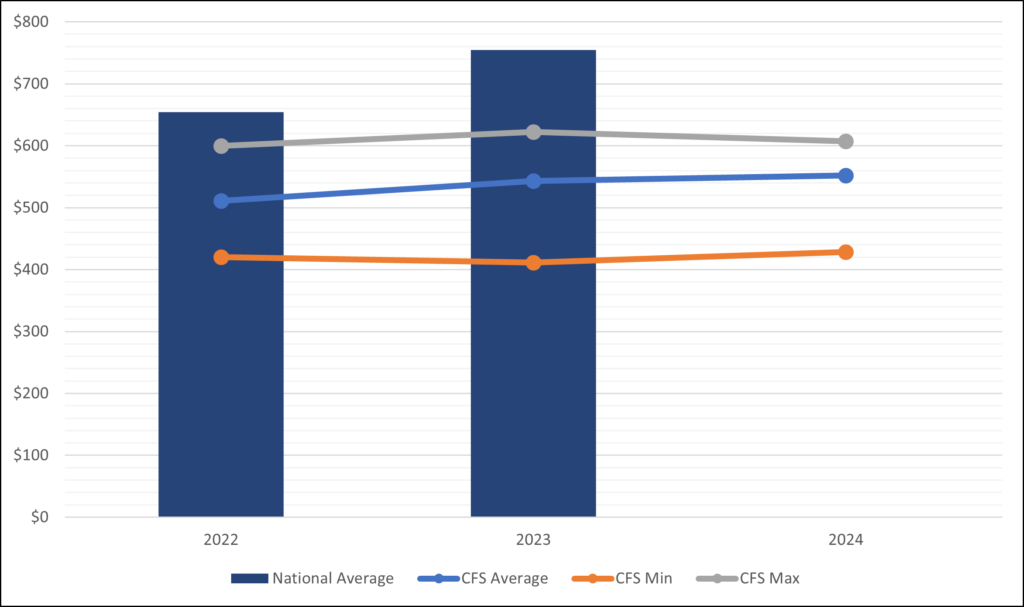
Figure 6: Average cost per credit unit of all field schools, and CFS per credit unit Average, Min & Max cost in years of operation (note that there were no field schools in 2020-21 due to the Covid pandemic)
